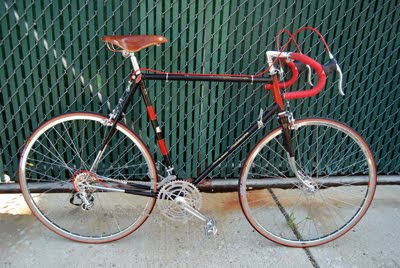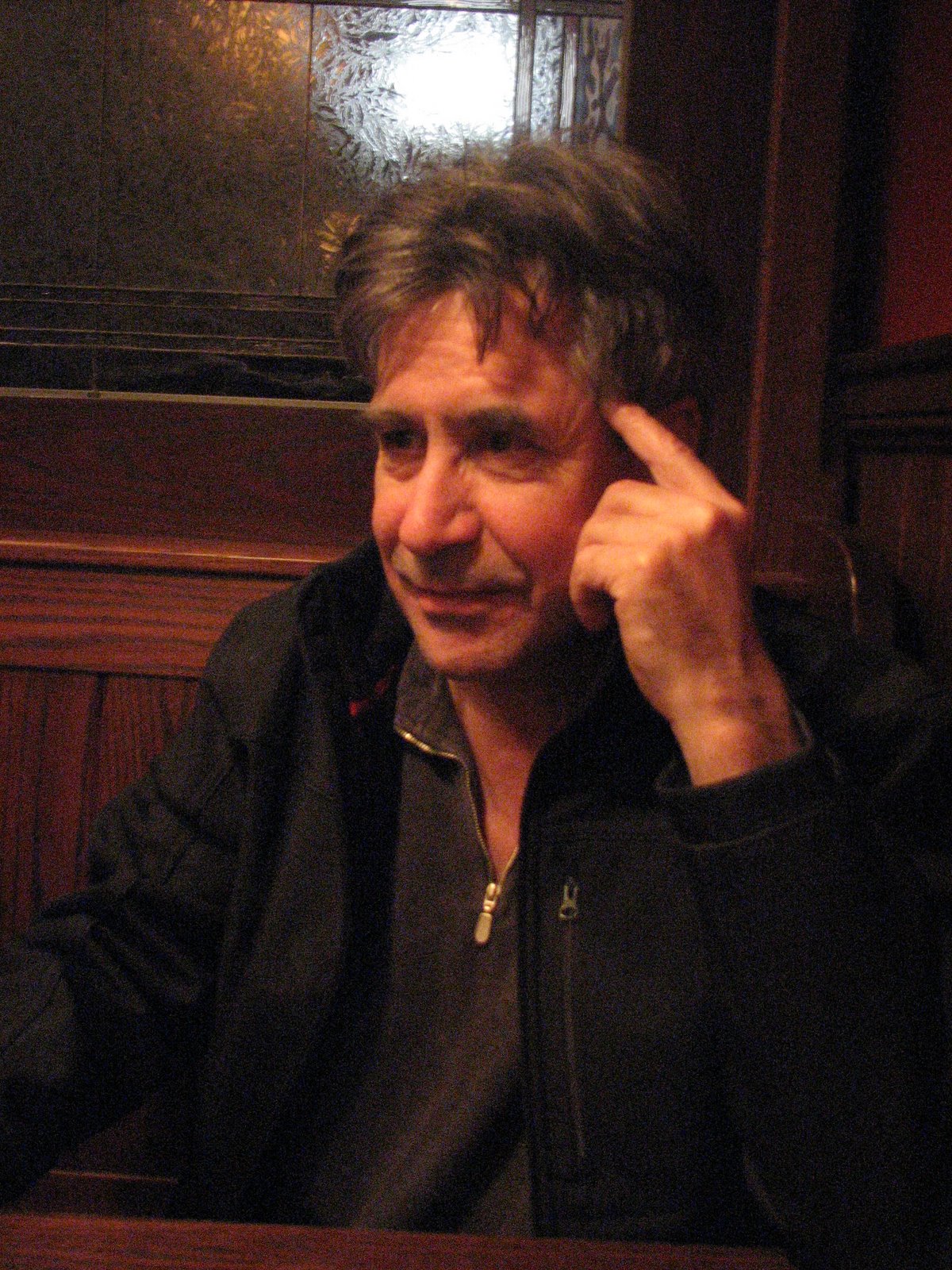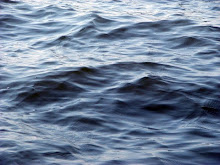 Though Folk Engineered is primarily a custom shop, in 2010 they brought out an all rounder production bike.
Though Folk Engineered is primarily a custom shop, in 2010 they brought out an all rounder production bike.
The Marsupial,
a practical and adaptive sport touring bicycle for daily commuting, pleasure road riding, light touring, and adventure.
Teaching boatbuilding

Discovery 2011 building an Oughtred Acorn skiff
all images courtesy Folk Engineered or Marie Pasquariello
Here's an interesting couple. They have a bikebuilding business together and Marie teaches boatbuilding to kids. I first learned of this duo when Marie left a comment on my second boats and bikes post on Chris Kulczycki. Through a series of emails and facebook interactions a picture began to emerge of a rather dynamic pair. Ryan Reedell and Marie Pasquariello are Folk Engineerded Bicycles. Marie has been sailing and boating since childhood, and was kind enough to respond to some questions I posed on the business, her involvement in the boat programs and a rather romantic story about her and Ryan's relationship. I'll let her tell the story:
First, I'd like to hear a bit about your family boating experiences.
"As I told you, my grandparents had a beach house at LBI, and every summer I got to spend time by the water. We had a Sunfish, and my mom taught me to sail on that. It's the same Sunfish that my mom learned to sail on. The Sunfish was purely for adventure, and I loved sailing in the bay. My Grandad also had a small pontoon boat. The whole family (me, my 3 siblings, mom, dad, grandparents, aunts, uncles, cousins, etc) would pile in and go gunk holing. We'd explore inlets. And, of course, we'd stop to find some food. Some days, this was crabbing. We were low tech crabbers, using string, a hook, and some fish carcasses. And, some days, we'd hop in and dig our feet in the gunk looking for clams. Either way, we'd usually come home with some shellfish.
When I got into my teens, my grandparents were diagnosed with cancer. Within a couple years, their beach house was sold. The Sunfish made its way to my home town, and I'd take it sailing solo in a lake nearby. I don't know where the pontoon boat went, but my uncles all got modern 20-25' fiberglass sailboats and took up the tradition of taking us gunk holing each summer by their homes. My Uncle John has a house in Maryland on the Chesapeake, my Uncle Bill is in Maryland as well, and my Uncle John has a beach house in Brick Township."
I'd also like to hear a bit more about the semester of cycling, how it led to romance and marriage and the job at the bike library, which I am assuming is a community cycling resource similar to Neighborhood Bike Works in Philly.
"I went to Rutgers College in New Brunswick, studying art and engineering at first. In my second year of college, I met Ryan at an artsy warehouse event in Philadelphia. He had long dreads and beard, was dirty and smelly, talked about the Buddha, and was amazing. Ryan had been traveling around the US for a couple years (hiking, hitchhiking, riding trains, riding bikes, etc) and was home to visit his sister, who had just had a baby. His most recent travels included a couple (of) long bike tours on the West Coat and in the Midwest, his last through the desert and ending at Burning Man. There was an immediate attraction and "world view" connection. Ryan and I spent a couple months together in New Brunswick. Then, we parted ways... well, Ryan actually rode his bike away, I waved, then drove home for Winter break. I left to study abroad in South Africa, and Ryan went out West for more adventure.
I spent 6 months studying and traveling in Africa. Ryan and I sent a couple emails back and forth, but I didn't expect to see him again. I attended the University of Pietermaritzburg and, every time I had a chance, I'd explore the region - visiting new friends' houses, doing what the locals do, hiking, camping, going to markets, horse back riding, adventures, etc. I extended my stay a couple months so I could trek around Lesotho, Swaziland, Zambia, Zimbabwe, Mozambique, and Botswana. My travels in Africa inspired an interest in sustainability, particularly in the US, my home. It also confused the hell out of me. What did I want to study? How did I want to contribute to my home society? You know, a normal existential college crisis.
A week before my plane ride home, I found out that Ryan was back in NJ. My goodness! But, my thinking was, who knows, he'll probably be leaving in a month anyway. I went down to New Brunswick to visit. He was on a friend's property digging a foundation (for what was supposed to be The Bike Library). We shared our adventures, slept in a van, and the connection was indeed still there.
We talked about my existential crisis and came up with a crazy idea - to go on(a) bike tour together on the west coast. This would mean I would have to drop out of school. On the other hand, it didn't mean that I wouldn't learn anything. So, I talked to a Professor at college, and we figured out I could do a research project. It was supposed to be about sustainable architecture, but evolved into sustainable transportation.
Ryan and I did a Craigslist rideshare out to California and landed in Santa Cruz. I had my backpack and me. Ryan had a bike and panniers and a trailer. Every morning we'd go to a cafe, where I'd hand sew parts of my panniers together, made from scraps from an awning store, pieces of a plastic bucket, and some hooks and straps. In the afternoon, we went to the Bike Church and I converted a too-small Trek 800 into a touring vehicle using their tool collective hours and work trade system. Ryan learned to work on bikes there (and on the road) and taught me to work on bikes there. Mind you, I'd never worked on a bike before... actually, I hadn't ridden a bike since I was 10. Thus, every evening was bicycle boot camp. Ryan would lead me all around, always having to camp at the top of the highest hill. I was tired, to say the least, but I was also getting strong. Of course, it wasn't all work... there were also farmer's markets, ice cream, family dinner experiences, etc.
After a couple weeks, we were prepared to leave. We headed north. Yea, the first couple days were painful, but we pushed on. We ended up zig-zagging all the way to Olympic Peninsula, stopping at various intentional communities and bike collectives along the way. The whole experience inspired my love for bicycles.. and made me learn to fix them. What a great way to get around. It's pretty fast and you feel great when doing it. I especially appreciated all the bicycle resources along the way and fully understood the vision for the Bike Library in New Brunswick.
When it was time to talk about coming home, again, I didn't expect Ryan to come. But, he did. That's when I knew he really liked me. At this point, we were making a decision to be together.
Upon returning to NJ, we starting volunteering a couple nights per week to keep the Bike Library open. The Bike Library is a volunteer-run bicycle tool collective... similar to Neighborhood Bike Works, but much smaller and only the co-op part. Depending on how many people are involved, it was open hours when people can come to learn to fix their bike or buy refurbished bicycles. There was always a constant flow of people during open hours. It lives in the basement of our friend Wil's house, and is yet to move to a structure built to house it.
I also changed my majors to art and math and got more research funding to do a pedal powered research project. Ryan and I worked on this together, despite the fact that Ryan wasn't in college. It was just our passion together. We designed and built about 10 function contraptions, including a food processor, recumbent trike, and kitchen trailer. I had the opportunity to take a chromoly framebuilding course at the United Bicycle Institute in Oregon. This is when we started collecting the tools we needed to build frames.
After graduation, Ryan and I worked on a small farm in upstate New York... and kept collecting tools. There, we decided we wanted to get married... some day. Then, we decided we wanted to move back to New Jersey... to the biggest city in NJ... Newark. A couple of my friends from high school lived there, so we moved in with them. Ryan was working at a machine shop and I got my job at Project U.S.E. We soon found a better place to live... a huge warehouse. It was 14,000 ft2 of communal living, work spaces, and tons of stuff.
In the warehouse in Newark, Ryan and I were able to build a shop a LOT and finally build frames. Since Ryan was working at a machine shop, he learned about precision and tool making. Our first fixtures and jigs were made there, until we finally got some machines of our own. We made our friends bikes. Then, we started getting requests from people we didn't know. It was then that we knew we had to take Folk Engineered to the next level.. and try to make frame building a livelihood.
We also got married in the warehouse on Sept 12, 2009. Ceremony in the alley behind the building, reception of the 4th floor, and celebratory bike ride to follow."
I'd like to hear about your husbands arc with cycling and the establishing of Folk Engineered and have you speak also to your involvement with the Co.
"I lot of Ryan's story is included above. But, you may like to know that Ryan was a track runner in high school. He's just naturally athletic. Thus, riding bikes.. and riding them fast.. is just a natural pleasure for him. Also, Ryan went to art school and studied printmaking... unrelated to anything he does now.
When FE started, Ryan and I shared all tasks, planning, designing, building, finances, etc. We did everything together. But, as FE grew, we had to specialize. Now, Ryan definitely leads the tool and fabrication department. He manages the shop. I definitely lead the communications and financial department. I manage the business. But, when it comes to bicycle engineering and vision, we work together... every bike is designed with both of our input. And, usually, both of us gets our hands on it in some way.
Also, the situation right now is that Ryan is able to work at FE full time. I work at Project U.S.E. and FE is my second full time job. For this reason, I don't get to do much frame building currently. We hope, in the next year or so, I can also work for FE full time and build frames."
What are the boats being built by Discovery 2011?
"We had 2 wonderful launches this year. All 6 boats floated with pride! The Discovery 2011 is a 10'2" Acorn Dinghy designed by Iain Oughtred. It has a round hull and is made with traditional lapstrake construction (albeit with marine plywood, still a lot of planing). This is my first endeavor at lapstrake... as well as the students. It was built by the Discovery Charter School in Newark, NJ and this was their 3rd boat (the first was a canoe and the second was a Salt Bay Skiff). It is named the Spodoxy. The Spodoxy is a mythological name representing the superheros at Discovery Charter School - Epoxy Girl, Sawdust Girl, Duct Tape Girl, Metal X, Sharp X, the Manager, etc. Each Boatbuilder has specific superpowers. Together, they form the Spodoxy team. Their boat, the Spodoxy, leads them to their secret lair in the middle of the Atlantic Ocean. Oh, and it can also fly. As you can probably infer, the Boatbuilding room was full of imagination at Discovery this year.
The 2 other boat designs you see are the 6-hour Canoe and the Salt Bay Skiff."
(Editors note: here is Marie's description of the project from2008)
"I joined Project U.S.E.'s boat building program this year. The Boat Building Project is a unique initiative by Project U.S.E. that is presented through a longterm, on-site relationship with participating schools and agencies. Students of middle- or high-school age explore the maritime history of their region and learn the science and art involved in boat building. The Project combines standard curricula, (math, physics, history, etc.) with rigorous and exciting experiential learning - a hallmark of Project U.S.E.'s programs. The Project culminates in the building and launching of wooden canoes or sailboats constructed by the students."
Where are you guys headed?
"FE plans to continue the tradition of custom bicycle building, because we believe it's our way to push the bicycle design industry. Our most challenging custom design of the year is the Oregon Manifest, designing the ultimate utility bicycle with 4th-8th grade students from a Newark charter school. This year, we came out with our first production bicycle, the Marsupial, a sport touring bike. We plan to do more manufacturing in the future, bring the tradition back to the US, and create jobs in the bike industry.
As for Project U.S.E., I'd love for the Boatbuilding Program to expand to have a Boat House facility. It would not only house our workshop but also be home base for on-water programs (paddling, navigation, community boating, etc). I am also working to�start a job training / re-entry program in bicycle mechanics and frame building.
In our personal lives, we'd like to be happy, healthy, and one day have a farm (near a waterway of course) with chickens and children.
I mean, inevitably, bikes and boats will always be a part of my life, whether with FE or Project U.S.E. or nothing."
I hope you'll enjoy this story as much as I did.
Original post Thomas Armstrong @ 70.8%


















2.JPG)





















1 comment:
they also make the InStep Quick N Lite Bicycle Trailer (QL152) easier to spot so it serves as a safety feature. Other benefits of buying this particular baby bicycle trailer is the rust free rims
Instep Quick N Ez Bicycle Trailer
Post a Comment